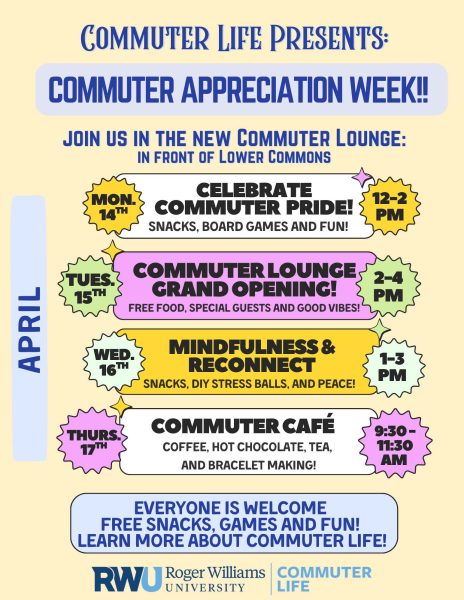Public Safety goes green with new hybrid vehicles
For the past two weeks, students may have noticed that RWU’s Public Safety officers recently added two new cars to the fleet. The new cars are 2017 and 2018 Toyota Highlanders.
According to Toyota’s website, the vehicle is an ultra-low-emission vehicle II (ULEV-II), which means that it emits extremely low levels of emissions compared to other cars.
The main reasons behind the new purchases are to lower fuel costs and support the eco-friendly efforts that are campus-wide.
According to Steven Melaragno, director of the Department of Public Safety, an analysis done last year showed that the department will save $600 to $800 per year in fuel costs by switching to the hybrid car. They compared the shift commander’s Ford Escape to the EMT’s gas-only Ford and discovered that it would not only significantly lower fuel costs, but it would also fit in with the sustainability efforts currently happening at RWU.
“The big benefit is reducing the fuel consumption and supporting the overall ecological work at the university,” Melaragno said.
Public Safety hopes to purchase one new car a year, most likely RAV 4s, until they have switched to a completely hybrid fleet.
Officer Warren Brown also pointed out an important safety aspect of the new vehicles; a back-up camera allows the officers to see behind them much more easily than they could in the old vehicles. With students walking across the street left and right, it helps to increase visibility behind them.
It is much easier for the officers to transport students in these new cars. In the smaller vehicles, when helping students on crutches get to class, it can be difficult to fit them and their friends who are carrying their books for them. In the new Highlanders, however, there is more room to fit more students, which makes for a more comfortable ride.
In addition to the new Public Safety vehicles, the Eco Reps are still working hard on composting. Instead of throwing food and biodegradable products in the trash, the club is encouraging students to put them in composting bins, which releases methane into the air and creates useful soil to grow more food or plant trees.
The program run by the group allows interested students to sign up and receive a composting bucket for their kitchen. When students fill their bucket, they then bring them to the larger black tub located at the trash area of each Bayside U and next to the tennis courts near North Campus Residence Hall.
According to the Eco Reps, around 40 students are currently participating in this program.
Another eco-friendly effort proposed by the club is to install more hydration stations throughout the RWU campus. They have run into a problem with installation because it is very expensive to put these stations in, but are working on ways to get around this issue. The main goal is to decrease the number of plastic, single-use water bottles and replace them with reusable water bottles. The hydration stations would encourage students to use reusable bottles instead of buying countless plastic water bottles.
If you are interested in learning more about or participating in these programs, please contact [email protected].




